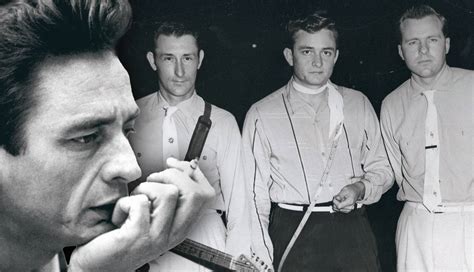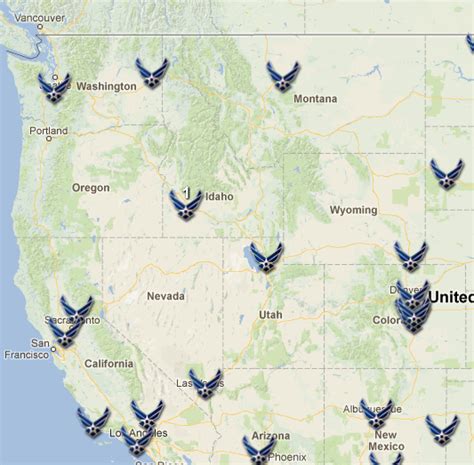The Man in Black, Johnny Cash, is a figure of legend in the world of music. With a career spanning over four decades, Cash left an indelible mark on the music industry, leaving behind a legacy that continues to captivate audiences to this day. Here are 12 fascinating facts about the life and times of Johnny Cash:
Early Life and Military Service: Born on February 26, 1932, in Kingsland, Arkansas, Johnny Cash grew up in a poor farming family. He enlisted in the United States Air Force in 1950, where he was stationed in Germany and began writing songs, including his first hit, “Hey Porter.”
The Formation of The Tennessee Three: After his military service, Cash formed his first band, The Tennessee Three, with guitarist Luther Perkins and bassist Marshall Grant. This lineup would go on to become one of the most iconic and influential bands in country music history.
Sun Records and the Birth of Rockabilly: In 1955, Cash auditioned for Sam Phillips at Sun Records in Memphis, Tennessee. Phillips was impressed by Cash’s deep, baritone voice and signed him to the label. It was during this period that Cash, along with other artists like Elvis Presley and Jerry Lee Lewis, helped to create the rockabilly sound that would later influence the development of rock and roll.
“I Walk the Line” and the First Hit: Released in 1956, “I Walk the Line” was Cash’s first single and his first hit, reaching number one on the Billboard charts. The song’s success was a testament to Cash’s unique voice and style, which blended elements of country, folk, and rock to create a sound that was both authentic and innovative.
Marriage to June Carter: In 1968, Cash married June Carter, a member of the legendary Carter Family and a talented singer-songwriter in her own right. The couple’s marriage was a long and happy one, and June became an integral part of Cash’s life and career, both on and off stage.
Live at Folsom Prison: In 1968, Cash performed a historic concert at Folsom Prison in California, which was later released as a live album. The concert was a groundbreaking moment in Cash’s career, cementing his reputation as a champion of the underdog and a voice for the downtrodden.
The Johnny Cash Show: From 1969 to 1971, Cash hosted his own television show, “The Johnny Cash Show,” which featured a diverse range of musical guests, from country and folk artists to rock and pop stars. The show was a huge success and helped to introduce Cash to a wider audience.
Activism and Advocacy: Throughout his career, Cash was a vocal advocate for social justice and human rights. He was particularly passionate about the rights of Native Americans and prisoners, and he often used his music and platform to raise awareness about these issues.
Drug Addiction and Redemption: Cash struggled with addiction to amphetamines and barbiturates throughout the 1960s, but with the help of June and his family, he was able to overcome his addiction and find redemption. His struggles with addiction are well-documented, and his story serves as a powerful testament to the dangers of substance abuse and the possibility of recovery.
American Recordings and the Later Years: In the 1990s, Cash signed with American Recordings and released a series of critically acclaimed albums, including “American Recordings” (1994) and “American IV: The Man Comes Around” (2002). These albums marked a creative resurgence for Cash, who was able to experiment with new sounds and collaborate with a wide range of artists.
Collaborations and Guest Appearances: Throughout his career, Cash collaborated with a wide range of artists, from Willie Nelson and Kris Kristofferson to Tom Petty and Chris Cornell. He was also a frequent guest on other artists’ albums, lending his voice and guitar to tracks by everyone from Bob Dylan to U2.
Legacy and Impact: Johnny Cash’s legacy extends far beyond his own music. He was a pioneering figure in the development of rock and roll, and his influence can be heard in everything from country and folk to punk and alternative rock. He was inducted into the Country Music Hall of Fame in 1980, the Rock and Roll Hall of Fame in 1992, and the Gospel Music Hall of Fame in 2010. Today, Cash’s music remains as relevant and powerful as ever, a testament to the enduring spirit of the Man in Black.
What was Johnny Cash’s first hit single?
+Johnny Cash’s first hit single was “I Walk the Line,” released in 1956. The song reached number one on the Billboard charts and marked the beginning of Cash’s successful music career.
Who was Johnny Cash’s wife, and what was her contribution to his career?
+Johnny Cash’s wife was June Carter, a talented singer-songwriter and member of the legendary Carter Family. June was an integral part of Cash’s life and career, providing emotional support and contributing to his music as a singer, songwriter, and duet partner.
What was the significance of Johnny Cash’s concert at Folsom Prison?
+Johnny Cash’s concert at Folsom Prison in 1968 was a groundbreaking moment in his career, cementing his reputation as a champion of the underdog and a voice for the downtrodden. The concert was later released as a live album and remains one of the most iconic and influential live recordings in music history.
What were some of Johnny Cash’s notable collaborations and guest appearances?
+Johnny Cash collaborated with a wide range of artists, including Willie Nelson, Kris Kristofferson, Tom Petty, and Chris Cornell. He also made guest appearances on albums by Bob Dylan, U2, and many others, lending his voice and guitar to tracks that showcased his versatility and influence.



